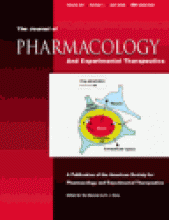Abstract
ATP-binding cassette (ABC) transporters are a large family of proteins whose role is to translocate various substances across biological membranes. They include the Tangier disease protein ABC1, sulfonylurea receptors (SUR), multidrug resistance protein (MDR), and cystic fibrosis transmembrane regulator (CFTR). In the current study, we investigated the involvement of ABC transporters in the regulation of lipopolysaccharide (LPS) and/or interferon (IFN)-γ-induced interleukin (IL)-12 p40 and tumor necrosis factor (TNF)-α production, nitric oxide formation, as well as major histocompatibility complex II up-regulation in macrophages. The general ABC transporter inhibitor glibenclamide suppressed both IL-12 p40 and nitric oxide production. However, glibenclamide failed to affect the production of TNF-α. The selective ABC1 inhibitors 4,4′-diisothiocyanostilbene-2,2′-disulfonic acid and sulfobromophthalein mimicked the suppressive effect of glibenclamide on IL-12 p40 production. On the other hand, both the MDR inhibitor verapamil and CFTR blocker 2,2′-iminodibenzoic acid failed to suppress the production of IL-12 p40. Furthermore, selective inhibitors and activators of SURs were without effect. In agreement with the pharmacological data, macrophages expressed mRNA for ABC1, but not SURs or CFTR. Intracellular levels of IL-12 p40 were decreased by glibenclamide, suggesting that glibenclamide does not affect IL-12 p40 secretion. The effect of glibenclamide did not involve an interference with the activation of the p38 and p42/44 mitogen-activated protein kinases or c-Jun kinase. Glibenclamide also suppressed IFN-γ-induced up-regulation of major histocompatibility complex II. Taken together, our results indicate that ABC proteins regulate LPS and/or IFN-γ-induced macrophage activation.
Footnotes
- Abbreviations:
- ABC
- ATP-binding cassette
- SUR
- sulfonylurea receptor
- CFTR
- cystic fibrosis conductance regulator
- MDR
- multidrug resistance protein
- IL
- interleukin
- DIDS
- diisothiocyanostilbene-2,2′-disulfonic acid
- BSP
- sulfobromophthalein
- IFN
- interferon
- LPS
- lipopolysaccharide
- MTT
- 3-(4,5-dimethylthiazol-2-yl)-2,5-diphenyltetrazolium bromide
- DPC
- 2,2′-iminodibenzoic acid
- DMSO
- dimethyl sulfoxide
- PBS
- phosphate-buffered saline
- TNF
- tumor necrosis factor
- ELISA
- enzyme-linked immunosorbent assay
- RT-PCR
- reverse transcription-polymerase chain reaction
- PCR
- polymerase chain reaction
- bp
- base pair
- MAPK
- mitogen-activated protein kinase
- JNK
- c-Jun N-terminal protein kinase
- IκB
- inhibitory factor κB
- Ab
- antibody
- MHC
- major histocompatibility complex
- KATP
- ATP-gated potassium
- Received September 7, 2001.
- Accepted December 11, 2001.
- The American Society for Pharmacology and Experimental Therapeutics
JPET articles become freely available 12 months after publication, and remain freely available for 5 years.Non-open access articles that fall outside this five year window are available only to institutional subscribers and current ASPET members, or through the article purchase feature at the bottom of the page.
|






